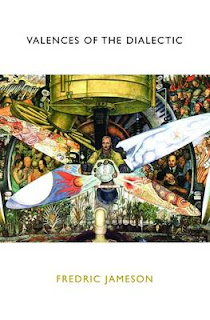The Society for Social and Political Philosophy is pleased to issue a
CALL FOR PARTICIPANTS
for a Roundtable on Marx’s Capital
{ Texas A&M University, College Station, Texas, February 24-27, 2011 }
Keynote address by Harry Cleaver
Associate Professor of Economics at the University of Texas at Austin,
and author of Reading Capital Politically
The SSPP’s second Roundtable will explore Volume One of Marx’s Capital (1867). We chose this text because the resurgence in references to and mentions of Marx – provoked especially by the current financial crisis and global recession, but presaged by the best-seller status of Hardt and Negri’s Empire and Marx’s surprising victory in the BBC’s “greatest philosopher” poll – has only served to highlight the fact that there have arguably not been any new interpretive or theoretical approaches to this book since the Althusserian and autonomist readings of the 1960s.
The question that faces us is this: Does the return of Marx mean that we have been thrust into the past, such that long “obsolete” approaches have a newfound currency, or does in mean, on the contrary, that Marx has something new to say to us, and that new approaches to his text are called for?
The guiding hypothesis of this Roundtable is that if new readings of Capital are called for, then it is new readers who will produce them.
Therefore, we are calling for applications from scholars interested in approaching Marx’s magnum opus with fresh eyes, willing to open it to the first page and read it through to the end without knowing what they might find. Applicants need not be experts in Marx or in Marxism. Applicants must, however, specialize in some area of social or political philosophy. Applicants must also be interested in teaching and learning from their fellows, and in nurturing wide-ranging and diverse inquiries into the history of political thought.
If selected for participation, applicants will deliver a written, roundtable-style presentation on a specific part or theme of the text. Your approach to the text might be driven by historical or contemporary concerns, and it might issue from an interest in a theme or a figure (be it Aristotle or Foucault). Whatever your approach, however, your presentation must centrally investigate some aspect of the text of Capital. Spaces are very limited.
Applicants should send the following materials as email attachments (.doc/.rtf/.pdf) to papers@sspp.us by September 15, 2010:
• Curriculum Vitae
• One page statement of interest, including a discussion of a) the topics you wish to explore in a roundtable presentation, and b) the projected significance of participation for your research and/or teaching.
All applicants will be notified of the outcome of the selection process via email on or before October 15, 2010. Participants will be asked to send a draft or outline of their presentation to papers@sspp.us by January 15, 2011 so that we can finalize the program.






